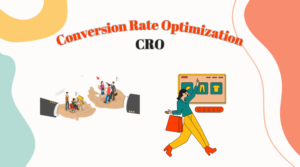Law Firm SEO
Law firms, like any other business, need to establish a strong online presence to attract potential clients and stay ahead in today’s digital age.
Search Engine Optimization (SEO) plays a vital role in helping law firms improve their visibility and rank higher in search engine results.
In this article, NewSunSEO will explore the importance of Law Firm SEO and discuss effective strategies to enhance their online presence.
Table of Contents
- Understanding the Benefits of SEO for Law Firms
- Keyword Research and Optimization
- On-Page Optimization Techniques
- Creating Engaging and Informative Content
- Building High-Quality Backlinks
- Local SEO for Law Firms
- Mobile Optimization and Responsive Design
- User Experience and Website Navigation
- Tracking and Analyzing SEO Performance
- Staying Up-to-Date with SEO Trends
- Measuring Success with Key Metrics
- Common SEO Mistakes to Avoid
- The Role of Social Media in Law Firm SEO
In today’s digital era, potential clients turn to search engines when seeking legal services.
Law Firm SEO is the practice of optimizing a law firm’s website to improve its visibility in search engine results pages (SERPs).
By implementing effective SEO strategies, law firms can increase their organic traffic, attract more qualified leads, and establish themselves as authoritative sources in their respective legal areas.
2. Understanding the Benefits of SEO for Law Firms
Law Firm SEO offers numerous advantages, including:
- Increased Online Visibility: By optimizing their website, law firms can appear on the first page of search engine results, making it easier for potential clients to find them.
- Targeted Traffic: Effective SEO techniques help attract users who are actively searching for legal services related to the firm’s areas of expertise.
- Credibility and Trust: Higher search engine rankings instill trust and credibility in potential clients, as they perceive top-ranking websites to be more reliable and authoritative.
- Cost-Effective Marketing: Compared to traditional advertising methods, SEO provides a cost-effective long-term marketing strategy that generates ongoing organic traffic.
- Competitive Edge: Implementing SEO strategies can help law firms surpass their competitors and gain a competitive advantage in the online marketplace.
3. Keyword Research and Optimization
Keyword research forms the foundation of any successful SEO campaign.
Law firms need to identify relevant keywords and phrases that potential clients are likely to use when searching for legal services.
These keywords should align with the firm’s areas of practice and target audience.
Once the keywords are identified, they should be strategically incorporated into the website’s content, meta tags, headers, and URLs to optimize the site for search engines.
4. On-Page Optimization Techniques
On-page optimization involves optimizing various elements within a law firm’s website to improve its search engine rankings.
This includes optimizing title tags, meta descriptions, headers, and image alt tags.
Additionally, ensuring proper URL structure, incorporating internal linking, and optimizing page load speed is crucial for on-page SEO success.
5. Creating Engaging and Informative Content
High-quality content plays a pivotal role in attracting and engaging potential clients.
Law firms should create informative and engaging content that addresses the legal needs and concerns of their target audience.
Publishing articles, blog posts, case studies, and legal guides not only help establish the firm’s expertise but also increases the likelihood of other websites linking to their content, thus improving search engine rankings.
6. Building High-Quality Backlinks
Backlinks, or inbound links, are crucial for off-page SEO.
Law firms should focus on building high-quality backlinks from reputable sources in the legal industry.
This can be achieved through guest blogging, creating shareable content, participating in legal forums, and reaching out to authoritative legal websites for collaboration opportunities.
Backlinks serve as a vote of confidence for search engines, indicating the firm’s credibility and expertise.
7. Local SEO for Law Firms
Law firms primarily serve clients within their local area.
Implementing local SEO strategies helps optimize a law firm’s online presence for local searches.
This includes creating and optimizing Google My Business listings, obtaining positive online reviews, optimizing local citations, and ensuring consistent business information across various online directories.
Local SEO helps law firms attract clients in their geographical vicinity and increases the chances of potential clients contacting the firm.
8. Mobile Optimization and Responsive Design
With the rise of smartphones and mobile internet usage, law firms must prioritize mobile optimization.
Websites should be mobile-friendly and have a responsive design that adapts to different screen sizes.
Mobile optimization enhances the user experience and improves search engine rankings, as search engines prioritize mobile-friendly websites in mobile search results.
9. User Experience and Website Navigation
A positive user experience is crucial for both potential clients and search engines.
Law firm websites should be easy to navigate, visually appealing, and provide a seamless user experience across different devices.
Fast page loading speed, intuitive site structure, clear call-to-action buttons, and well-organized content contribute to an excellent user experience and improve the chances of potential clients engaging with the firm.
10. Tracking and Analyzing SEO Performance
Tracking and analyzing SEO performance is essential for measuring the effectiveness of strategies and making informed decisions.
Law firms should utilize web analytics tools to monitor organic traffic, keyword rankings, conversion rates, and other key metrics.
By gaining insights into the performance of their SEO efforts, law firms can identify areas for improvement and optimize their strategies accordingly.
11. Staying Up-to-Date with SEO Trends
SEO is an ever-evolving field, and it’s crucial for law firms to stay updated with the latest trends and algorithm changes.
Following reputable SEO blogs, attending industry conferences, and engaging in professional networks help law firms stay ahead of the curve and adapt their strategies to align with the current best practices.
12. Measuring Success with Key Metrics
To measure the success of their SEO efforts, law firms should focus on key metrics such as organic traffic, keyword rankings, conversion rates, and the number of quality leads generated.
By regularly tracking these metrics and setting specific goals, law firms can evaluate the effectiveness of their SEO campaigns and make data-driven decisions for continuous improvement.
13. Common SEO Mistakes to Avoid
While implementing SEO strategies, law firms should be aware of common mistakes that can hinder their success.
Some common SEO mistakes to avoid include keyword stuffing, using duplicate content, neglecting website maintenance, ignoring local SEO, and neglecting the importance of user experience.
By avoiding these pitfalls, law firms can maximize their chances of success in the digital landscape.
14. The Role of Social Media in Law Firm SEO
Social media platforms provide law firms with additional channels to engage with their target audience and amplify their online presence.
By maintaining active social media profiles, sharing informative content, participating in discussions, and engaging with followers, law firms can enhance their SEO efforts.
Social media signals, such as likes, shares, and comments, can indirectly impact search engine rankings and drive organic traffic to the firm’s website.
Conclusion
In today’s competitive legal industry, law firm SEO is essential for attracting potential clients and establishing a strong online presence.
By implementing effective SEO strategies such as keyword research and optimization, on-page optimization, content creation, backlink building, and local SEO, law firms can improve their search engine rankings, increase organic traffic, and generate more qualified leads.
Staying up-to-date with SEO trends, measuring performance, and avoiding common SEO mistakes are crucial for long-term success.
Embracing SEO as a core marketing strategy will enable law firms to thrive in the digital landscape.
Law Firm SEO FAQs
1. How long does it take to see results from law firm SEO?
The time it takes to see results from law firm SEO can vary depending on various factors, such as the keywords’ competitiveness, the website’s current state, and the effectiveness of the SEO strategies implemented.
Generally, it can take several months to start seeing significant improvements in search engine rankings and organic traffic.
However, consistent effort and ongoing optimization can lead to long-term success.
2. Can small law firms benefit from SEO?
Yes, small law firms can greatly benefit from SEO.
In fact, SEO can level the playing field and provide smaller firms with an opportunity to compete with larger, more established firms.
By targeting specific niches, optimizing for local searches, and focusing on long-tail keywords, small law firms can attract highly targeted traffic and generate quality leads within their budget.
3. Is SEO a one-time effort, or does it require ongoing maintenance?
SEO is not a one-time effort but rather an ongoing process.
Search engine algorithms are constantly evolving, and competitors are continually optimizing their websites.
To maintain and improve search engine rankings, law firms need to consistently monitor and update their SEO strategies, create fresh and engaging content, build quality backlinks, and adapt to changes in the digital landscape.
4. Are paid ads necessary alongside law firm SEO?
While SEO is a cost-effective long-term strategy, paid ads can complement SEO efforts by providing immediate visibility and driving targeted traffic to a law firm’s website.
Paid ads, such as pay-per-click (PPC) campaigns, can be used strategically to supplement organic search results and enhance the firm’s online presence.
The decision to invest in paid ads alongside SEO depends on the firm’s marketing goals, budget, and target audience.
5. How can I measure the success of my law firm’s SEO efforts?
To measure the success of your law firm’s SEO efforts, you can track key metrics such as organic traffic, keyword rankings, conversion rates, and the number of quality leads generated.
Utilize web analytics tools, set specific goals, and regularly review performance data.
By analyzing these metrics, you can assess the effectiveness of your SEO campaigns, identify areas for improvement, and refine your strategies for better results.




